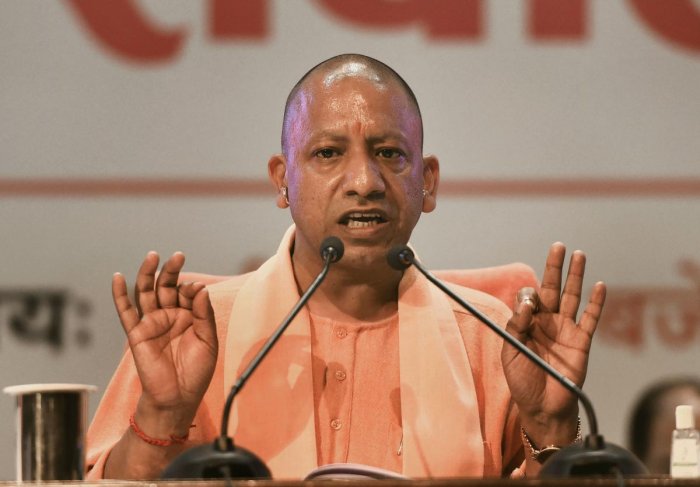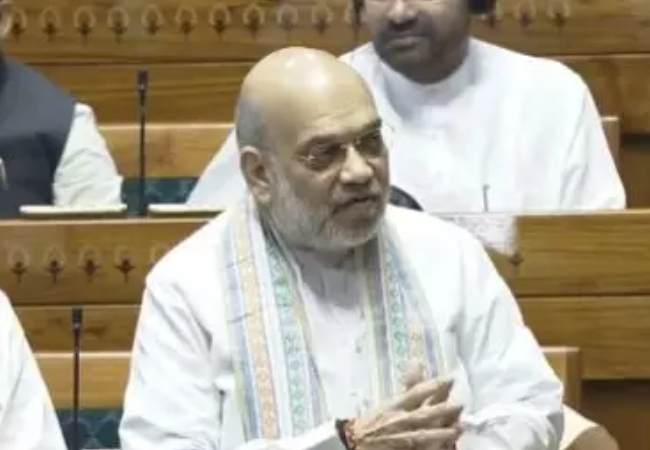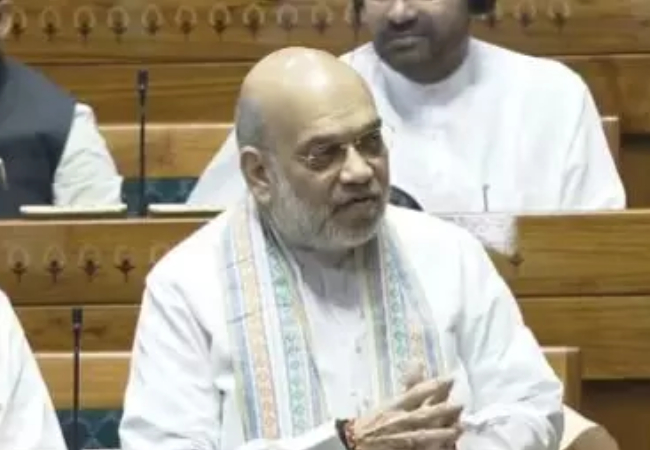Lucknow: Uttar Pradesh Chief Minister Adityanath has ordered officials that a 24-hour Akhand Paath (recitation) of the Ramcharitmanas (religious book on Lord Ram) should be organised in all districts of the state on the occasion of Chaitra Ram Navami.
The Adityanath-led government also issued orders to shut down all meat shops on Chaitra Ram Navami (April 6) and enforce a ban on the sale of meat within a 500-metre radius of religious places during the nine-day festival, as reported by The Indian Express on Sunday.
The Chief Minister also emphasised the need to ensure uninterrupted 24-hour power supply across the state during the Hindu festival. He further instructed that egg or meat shops, along with similar establishments, should not be allowed near temples and stressed the implementation of strict measures to prevent illegal slaughtering.
The state government warned that those violating the order will be punished under the Uttar Pradesh Municipal Corporation Act, 1959, and the Food Safety Acts of 2006 and 2011.
District-level committees have been formed under the leadership of district magistrates to ensure implementation of the order, the report added. These committees include officials from the police, Pollution Control Board, animal husbandry department, transport department, labour department, health department and food safety administration.
Let the Truth be known. If you read VB and like VB, please be a VB Supporter and Help us deliver the Truth to one and all.
New Delhi (PTI): The ruling NDA on Wednesday launched a feisty defence of the Waqf (Amendment) Bill in the Lok Sabha amid the opposition's charge that it was unconstitutional and targeted Muslims, as Home Minister Amit Shah asserted that the government had no intention of interfering in their religious matters and was solely driven by the aim of transparent administration of Waqf properties.
Shah's intervention came during the day-long debate that witnessed a fierce exchange between the two sides, with Congress Deputy Leader Gaurav Gogoi alleging that the bill was an attempt to attack the basic structure of the Constitution, defame minorities, disenfranchise them and divide the society.
Minorities Affairs Minister Kiren Rijiju in his opening remarks rejected the allegation that the proposed law was an interference in the constitutionally guaranteed freedom in religious affairs.
The bill has nothing to do with religion, but deals only with properties, he said tabling the Bill, which was examined and redrafted by a joint committee of Parliament.
"The government is not going to interfere in any religious institution. The changes made in the Waqf law by the UPA government gave it overriding effect over other statutes, hence the new amendments were required," Rijiju said amid noisy opposition protests.
"You (opposition) tried to mislead the people on issues which are not part of the Waqf Bill," she said to the opposition.
Both ministers asserted that the proposed reforms would ensure the welfare of poor Muslims and women.
The BJP was bolstered by a show of support from its key allies like the TDP, JD(U), Shiv Sena and Lok Janshakti Party (Ram Vilas), while the INDIA bloc put up a united show in opposing the bill.
Samajwadi Party chief Akhilesh Yadav claimed that the bill is a BJP's ploy for polarisation following its reverses in the Lok Sabha polls, alleging that it will send a wrong message to the world denting the country's secular image.
The bill will prove to be a "waterloo" for the BJP as some of its allies might be claiming to support the bill but inside they are not happy about the development, he said.
"Bringing Waqf Bill is the BJP's political game, it is a new form of their communal politics. The BJP wants to appease those supporters who are now distancing themselves from the party because of its policies.
After most of the leading opposition leaders had spoken, Shah launched a stout defence of the bill and rejected the most common criticism that the appointment of non-Muslims in the Waqf council and boards violated a community's right to manage its own affairs.
He also warned against instigating Muslims against the law, noting that an opposition MP had said that the minorities will not accept this. "It is the law of the Indian government and Parliament. Everyone will have to accept it."
The bill will become a law after it is notified following its passage in both Lok Sabha and Rajya Sabha.
Shah said the government is not going to have any say in the matters of Waqf, endowments made by Muslims for religiously charitable and pious purposes, adding that the council and boards are aimed at the management of the properties to ensure that they are used in line with the stated aims behind their donation.
He accused the opposition of "fear-mongering" over the bill's provisions, saying this is how they raised a vote bank.
He accused the Congress-led UPA government of effecting many amendments in the Waqf law in 2013 for its appeasement politics, saying these changes made the Act "extreme". Had those changes not been made, the government might not have brought the bill, he added.
He cited a host of instances from across the country about vast properties being claimed by different state Waqf boards, with a section of people involved in their management making personal gains while doing little for the community. The new law will catch such people and throw them out, he added.
"This money is of the poor Muslims not for a few moneybags," he said, citing the meagre income of Rs 163 crore from Waqf properties.
Citing speeches of several opposition leaders, including RJD president Lalu Prasad Yadav, in 2013, he said even they had noted the rampant property grab in the name of Waqf law.
Gogoi argued that the bill had not been adequately discussed with minority representatives.
"In 2023, four meetings of the Minority Commission were held, and yet, there was no mention of the need for a Waqf amendment bill. I ask the government - was this bill drafted by the Minority Affairs Ministry or some other department?"
The opposition MP also raised concerns over Clause 3, which defines individuals practising Islam.
"Minorities are now being forced to prove their religious identity with certificates. Tomorrow, will people from other faiths also have to do this? This is against Article 26 of the Constitution," he said.
BJP's Anurag Thakur said, "This bill is not about Hindu versus Muslim, this is law versus lawlessness, Constitution versus corruption."





